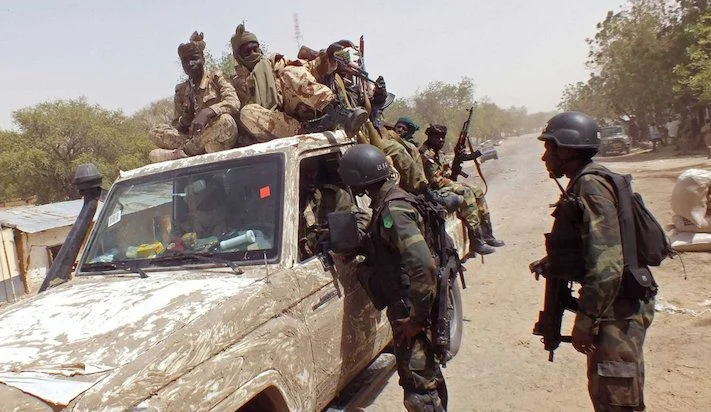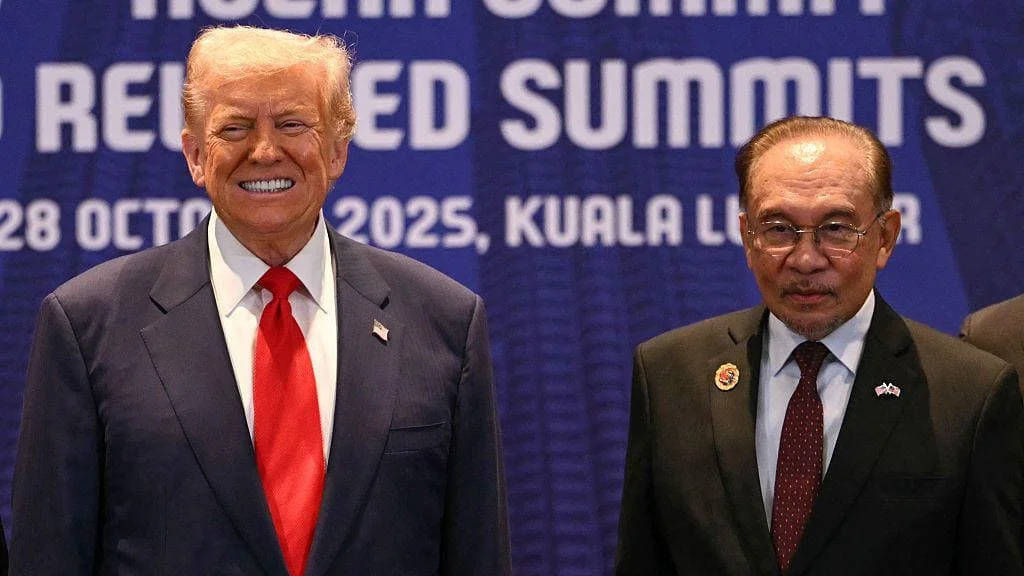On February 14th, 2023, Kenya held a national prayer day, a tradition where prayers are called for when the nation faces overwhelming challenges.
This time, the country was grappling with multiple stressors, one of which was an escalating security issue known as “banditry.”
The government, unable to find a lasting solution, turned to prayers, an act that critics argue is more of a distraction from addressing the real roots of the problem.
For years, the government has responded to national crises with various forms of public supplication, from prayer breakfasts to national prayers.
While some citizens see these acts as genuine expressions of faith, others view them as political moves to ease public pressure without offering real solutions. The ongoing violence in Kenya’s North Rift region, which has persisted for decades, falls under this category of unresolved issues.
In recent years, the violence in northern Kenya has gone beyond cattle rustling and small skirmishes. Since 2017, Kenyans have become more aware that the issue is far more complex, involving deeper geographical, economic, and social patterns.
The region is also suffering from one of the worst droughts in its history, worsening the conflict as communities compete for scarce resources. In the last six months, over 100 civilians and 16 security personnel have been killed, creating widespread fear and frustration among citizens.
The tipping point came on February 11th, 2023, when three security officers were killed in an ambush on the Lodwar-Kitale highway.
The attackers also seized guns and vehicles, sparking national outrage. Many questioned why, after years of efforts, the government has still not been able to bring the situation under control.
Trans-Nzoia County Governor, George Natembeya, highlighted the dire situation during the national prayer day, calling on President Ruto to confront the reality of the violence.
He pointed out that security personnel are often deployed with insufficient equipment, poor allowances, and even inadequate food supplies.
Ironically, Natembeya himself was the Rift Valley Regional Coordinator during the period when many of these security operations were carried out, raising questions about his role in the current state of affairs. Despite this, he received widespread praise for his candid remarks, and his call for military intervention was met with mixed reactions.
Governor Natembeya’s suggestion to “decimate” the bandits raised concerns. The use of such harsh language towards civilians, many of whom have not been formally identified as criminals, suggests a lack of understanding of the complex dynamics in the region.
This approach, if carried out, could result in harm to innocent people caught in the crossfire.
The violence in the North Rift has deep roots, and no single factor can fully explain it. Decades of ethnic animosities, resource conflicts, and displacement of communities have contributed to the unrest.
One significant issue is that pastoralists from northern Kenya have been gradually losing access to key grazing areas, which are now designated as wildlife conservancies. This has forced them into areas where conflicts with other communities are more likely to occur.
In 2017, a study on pastoralists in Marsabit, Isiolo, Laikipia, and Samburu counties found that their traditional migration routes had been blocked by private landowners, pushing them into conflict.
Many of these pastoralists also came from regions now controlled by wildlife conservancies, further limiting their access to grazing lands. The government’s inability to address these issues has left pastoralists with few options, and violence has become a means of survival.
Despite these complexities, the government has responded with increasingly heavy-handed measures, often ignoring the underlying causes of the conflict.
Governor Natembeya’s call for military intervention reflects a wider trend of using force rather than dialogue. However, this approach may lead to more violence, as militaries are not equipped to handle the social and political dimensions of these conflicts.
The ongoing violence in Kenya’s northern regions is a reminder that quick fixes and heavy-handed solutions rarely work.
To achieve lasting peace, the government must address the root causes of the conflict, including land access, ethnic tensions, and economic inequalities. Without a comprehensive strategy, Kenya risks prolonging the suffering of its citizens in the North Rift.
As the country moves forward, the real challenge will be whether the government can go beyond symbolic gestures like national prayers and take meaningful action to resolve this complex issue.
Kenya now faces the challenge of moving beyond just symbolic actions like national prayers and addressing the deeper issues fueling the ongoing violence in the North Rift region. The real question is whether the government will put in place comprehensive, long-term solutions to solve the root causes of the conflict, rather than relying solely on military interventions or temporary fixes.
One critical factor is the need for inclusive dialogue. The affected communities, including pastoralists, local leaders, and conservation groups, must be brought to the table.
Their voices and concerns need to be heard to form policies that reflect the realities on the ground. It is essential for the government to understand the dynamics of land use, resource sharing, and ethnic tensions, which are key drivers of the violence
. By acknowledging the complex nature of the conflict, the government can move toward a more peaceful and lasting solution.
At the same time, there needs to be a review of land policies and the management of conservancies. The rise of wildlife conservancies in northern Kenya, while important for conservation efforts, has led to the displacement of local communities, reducing their access to grazing land and natural resources. This has fueled tensions between pastoralists and private landowners.
A fair and balanced approach to land management that considers the rights of both communities and conservancies is crucial for preventing further conflict.
Additionally, improved security measures must go hand in hand with development initiatives. Investment in infrastructure, healthcare, education, and water access can help reduce the vulnerability of communities in northern Kenya, making them less dependent on cattle rustling and other violent means of survival.
Economic empowerment and social development can provide alternative livelihoods and reduce the appeal of banditry.
Most importantly, the government needs to restore public confidence in its ability to protect its citizens. Reforms within the security sector, ensuring that police and military personnel are well-equipped, properly trained, and adequately supported, are essential.
It is also crucial to ensure that security operations are carried out with respect for human rights and do not lead to further alienation of the affected communities.
In conclusion, Kenya’s response to the crisis in the North Rift must go beyond surface-level actions like national prayers or military interventions.
The country needs a well-thought-out, inclusive strategy that addresses the root causes of the conflict, from land disputes to economic inequalities. Only through comprehensive policies, dialogue, and development can Kenya hope to end the cycle of violence and bring lasting peace to the region.























